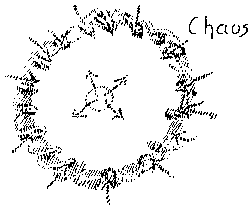Head
The head (Latin: caput; Greek: κεφαλή ‘‘kephalē‘‘; Hebrew: רֹאשׁ Rosh) is the centre of the nervous-sensory system in the threefold human organism. Its outer shape, which is determined by the form of the bony skull, is a result of the previous earthly incarnation. According to Rudolf Steiner, the formation of the head is very essentially connected with uric acid (Lit.:GA 348, p. 289ff).
The head as an image of the spirit
„If someone were to portray the spirit as such as a sculptor, he would actually have to study a human head that had been spiritualised through. Of course, if he is a model artist, he will not achieve anything special; but if he is not a model artist, but creates out of the spiritual, then he will produce a wonderful image of the innermost nature of the cosmic spiritual forces when he creates the human head. It is intuition, inspiration, imagination of cosmic spirituality that is present in the human head. It is as if the Godhead itself had wanted to create an image of the spiritual and had placed its head on the human being. It is therefore basically droll when men seek images of the spirit, while they have the best, the grandest, the most powerful image of the spirit, but precisely the image of the spirit, not the spirit itself, in the human head.“ (Lit.:GA 213, p. 164)
The head as a Medusa head
To clairvoyant vision, the head appears as the head of Medusa:
„For clairvoyance, however, a head is something quite different from what it appears to us in the ordinary human being. For the clairvoyant the brain is something that rises out of the head like a serpent. Every head is a Medusa's head. That is something very real. And this is the difference between the human head and the other body, that in relation to the other body the human being will only attain, through a progressive evolution, what in the case of the head is the ordinary outer thinking. In this lies even in a certain respect the strength of thinking, that man comes into the position of being able, as far as possible, to bring the brain to rest while he thinks, even into the finer, invisible movements, the nerve movements. By being able to have the brain quiet when he thinks, to have it quiet down to the finer movements, which are, so to speak, the nervous movements, thoughts become finer, calmer, more logical.“ (Lit.:GA 141, p. 113f)
The head as a product of degrading, centripetal forces
„What are the forces that work preferably in the human head and which are related to the centripetal, the compressing forces of the cosmos, what are these forces? They are those forces which are the oldest forces of our universe. Remember my descriptions in "Secret Science in Outline", how I described the old evolution of Saturn, how I had to point out that human sensual life had emerged from this evolution of Saturn. What has remained from this Saturnian evolution lies behind our sensory carpet as the cold, shivering world which has just developed out of the warmth of the beginning, into which we have to carry warmth today. That which lies behind the sensory carpet is, so to speak, the oldest of the worlds. We enter it unconsciously in the time from falling asleep to waking up. But we walk around in it all the time. It gives us everything that is connected with our senses. The centripetal forces, forming the senses from outside, as it were, work into our senses, into our eyes, into our ears, and from there into our physical mind, into that which we think. And as we go through the world thinking, we actually go through the world with that human possession which is formed for us out of this environment, that is, with the oldest forces which have now already arrived at decay. We must never forget that these are the forces that have actually already arrived at decay.

One would like to say that the matter is like this: If one schematically depicts the cosmos, striving apart into the distance, but held together centripetally at this boundary, these are the oldest forces of the cosmos (see drawing). They crumble in a certain way. And out of these crumbling forces, out of these forces already passing over into death, out of these forces that have become chaos, rises that which is our understanding, that which is our human intellect.“ (Lit.:GA 199, p. 182ff)
Literature
- Rudolf Steiner: Die Apokalypse des Johannes, GA 104 (1985), ISBN 3-7274-1040-X English: rsarchive.org German: pdf pdf(2) html mobi epub archive.org
- Rudolf Steiner: Das Leben zwischen dem Tode und der neuen Geburt im Verhältnis zu den kosmischen Tatsachen, GA 141 (1997), ISBN 3-7274-1410-3 English: rsarchive.org German: pdf pdf(2) html mobi epub archive.org
- Rudolf Steiner: Geisteswissenschaft als Erkenntnis der Grundimpulse sozialer Gestaltung, GA 199 (1985), ISBN 3-7274-1990-3 English: rsarchive.org German: pdf pdf(2) html mobi epub archive.org
- Rudolf Steiner: Menschenfragen und Weltenantworten, GA 213 (1987), ISBN 3-7274-2130-4 English: rsarchive.org German: pdf pdf(2) html mobi epub archive.org
 |
References to the work of Rudolf Steiner follow Rudolf Steiner's Collected Works (CW or GA), Rudolf Steiner Verlag, Dornach/Switzerland, unless otherwise stated.
Email: verlag@steinerverlag.com URL: www.steinerverlag.com. Index to the Complete Works of Rudolf Steiner - Aelzina Books A complete list by Volume Number and a full list of known English translations you may also find at Rudolf Steiner's Collected Works Rudolf Steiner Archive - The largest online collection of Rudolf Steiner's books, lectures and articles in English. Rudolf Steiner Audio - Recorded and Read by Dale Brunsvold steinerbooks.org - Anthroposophic Press Inc. (USA) Rudolf Steiner Handbook - Christian Karl's proven standard work for orientation in Rudolf Steiner's Collected Works for free download as PDF. |
